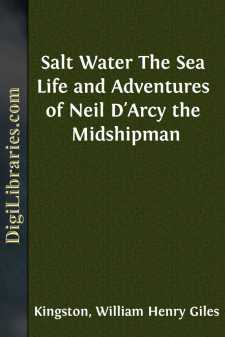Categories
- Antiques & Collectibles 13
- Architecture 36
- Art 48
- Bibles 22
- Biography & Autobiography 813
- Body, Mind & Spirit 142
- Business & Economics 28
- Children's Books 17
- Children's Fiction 14
- Computers 4
- Cooking 94
- Crafts & Hobbies 4
- Drama 346
- Education 46
- Family & Relationships 57
- Fiction 11829
- Games 19
- Gardening 17
- Health & Fitness 34
- History 1377
- House & Home 1
- Humor 147
- Juvenile Fiction 1873
- Juvenile Nonfiction 202
- Language Arts & Disciplines 88
- Law 16
- Literary Collections 686
- Literary Criticism 179
- Mathematics 13
- Medical 41
- Music 40
- Nature 179
- Non-Classifiable 1768
- Performing Arts 7
- Periodicals 1453
- Philosophy 64
- Photography 2
- Poetry 896
- Political Science 203
- Psychology 42
- Reference 154
- Religion 513
- Science 126
- Self-Help 84
- Social Science 81
- Sports & Recreation 34
- Study Aids 3
- Technology & Engineering 59
- Transportation 23
- Travel 463
- True Crime 29
Sort by:
by:
Alice B. Emerson
CHAPTER I THE GORED COW For lack of a better listener, Betty Gordon addressed the saucy little chipmunk that sat on the top rail of the old worn fence and stared at her with bright, unwinking eyes. "It is the loveliest vase you ever saw," said Betty, busily sorting the tangled mass of grasses and flowers in her lap. "Heavy old colonial glass, you know, plain, but with beautiful lines."...
more...
by:
Ridgwell Cullum
CHAPTER I A GENTLEMAN RANKER Dan McLagan shifted his cigar, and his face lit with a grin of satisfaction. “Seventy-five per cent, of calves,” he murmured, glancing out at the sunlit yards. “Say, it’s been an elegant round-up.” Then his enthusiasm rose and found expression. “It’s the finest, luckiest ranch in Montana––in the country. Guess I’d be within my rights if I said ‘in the...
more...
by:
Carl Ewald
The Old Willow-tree 1 There are many kinds of willows and they are so unlike that you would hardly believe them to be relations. There are some so small and wretched that they creep along the ground. They live on the heath, or high up in the mountains, or in the cold arctic regions. In the winter, they are quite hidden under the snow; in the summer, they just poke up their noses above the tops of the...
more...
by:
Henry James
HE thought he had already, poor John Berridge, tasted in their fulness the sweets of success; but nothing yet had been more charming to him than when the young Lord, as he irresistibly and, for greater certitude, quite correctly figured him, fairly sought out, in Paris, the new literary star that had begun to hang, with a fresh red light, over the vast, even though rather confused, Anglo-Saxon horizon;...
more...
by:
Mrs. Inchbald
REMARKS. This tragedy has been so rapturously applauded on the stage, and so severely criticised in the closet, that it is a task of peculiar difficulty to speak either of its beauties or its defects, with any degree of certainty. To conciliate both the auditor and the reader, both the favourable and the unfavourable critic, the "Grecian Daughter" demands a set of Remarks for each side of the...
more...
Neil D’Arcy’s Life at Sea. My Ancestors—Larry Harrigan, and my Early Education—Choice of a Profession—First Start in Life. “The sea, the sea,” if not my mother, has been my nurse (and anything but a dry one) from the earliest days of my recollection. I was born within the sound of old ocean’s surges; I dabbled in salt water before I could run; and I have floated on salt water, and have...
more...
by:
Cory Doctorow
CHAPTER 1 My girlfriend was 15 percent of my age, and I was old-fashioned enough that it bugged me. Her name was Lil, and she was second-generation Disney World, her parents being among the original ad-hocracy that took over the management of Liberty Square and Tom Sawyer Island. She was, quite literally, raised in Walt Disney World and it showed. It showed. She was neat and efficient in her every...
more...
Preface. In this tale I have left the battlefields of history, and have written a story of adventure in Australia, in the early days when the bush rangers and the natives constituted a real and formidable danger to the settlers. I have done this, not with the intention of extending your knowledge, or even of pointing a moral, although the story is not without one; but simply for a change--a change both...
more...
by:
Ticul Alvarez
In several of the past twelve years field parties from the Museum of Natural History have collected mammals in the Mexican state of Sinaloa. Most of the collections contained only a modest number of specimens because they were made by groups that stopped for short periods on their way to or from other areas, but several collections are extensive. Field work by representatives of this institution now is...
more...
by:
Robert Tressell
Preface In writing this book my intention was to present, in the form of an interesting story, a faithful picture of working-class life--more especially of those engaged in the Building trades--in a small town in the south of England. I wished to describe the relations existing between the workmen and their employers, the attitude and feelings of these two classes towards each other; their...
more...











